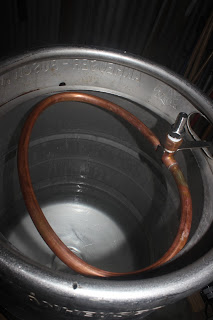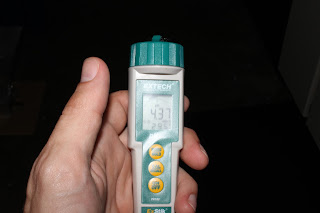I had a piece of 1/2" copper tubing left over from making a whirlpool attachment so after a quick run to HomeDepot to purchase a T adapter and 1/2" FPT adapter. After a bit of bending, soldering and drilling:
I initially was going to let the sparge arm rest on the kegggle top but quickly found out that was going to be a pain in the arse and it wouldn't stay in place unless I used a clamp to hold it on securely. After looking around the shop a bit, I found a solution!
An old curtain rod hanger works perfect!
I only needed to drill one hole in the keg to support it. Placing the sparge arm in the hanger at the base of the T creates a snug fit.
For the HERMS, now all I have to do it place my immersion chiller in my HLT and run a jumper hose from the immersion chiller outlet to the sparge arm. To make life a bit easier, I also replace the inlet on the immersion chiller with a camlock in order to make a connection to my chugger pump.










